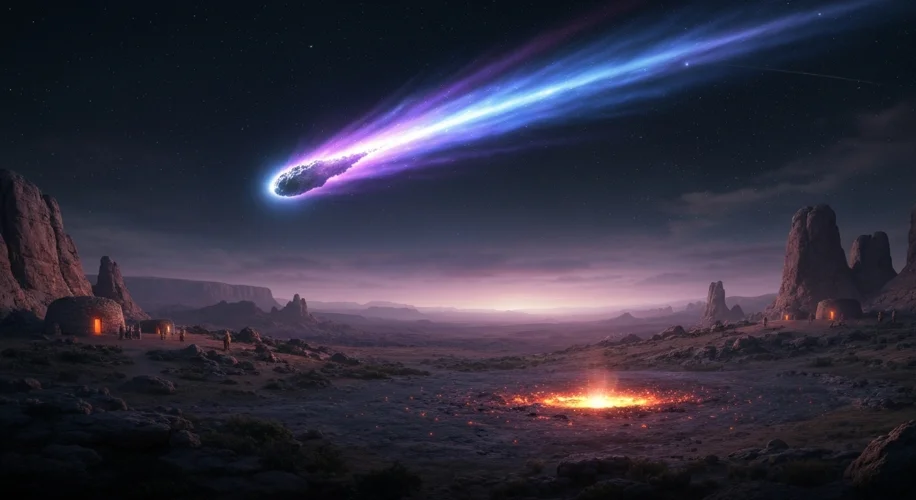It’s hard to imagine, but our planet’s history might hold a secret more dramatic than any storybook.
Around 12,800 years ago, something happened that drastically changed Earth’s climate. Scientists, looking at evidence like ancient ice cores and geological layers, believe a massive cosmic event might be the culprit. The leading theory? A comet or comet fragments slamming into our planet.
Did you know that this event is linked to the Younger Dryas period? This was a time when global temperatures suddenly dropped, plunging parts of the world back into near-ice age conditions. This dramatic climate shift didn’t just affect the weather; it seems to have had a profound impact on early human societies.
What’s fascinating is that many scientists are connecting this cosmic event to the decline of advanced ancient civilizations that were thriving at the time. Think about it: a sudden, severe climate change would have disrupted agriculture, access to resources, and the stability of settlements. It’s a stark reminder of how vulnerable even sophisticated societies can be to the forces of nature, and even beyond our planet.
As an atmospheric scientist, I’m always struck by the power of these large-scale climate shifts. They demonstrate how interconnected everything is – from the atmosphere we breathe to the cosmic events that happen billions of miles away. This potential comet impact isn’t just a historical footnote; it’s a scientific puzzle that helps us understand our planet’s past and the delicate balance that sustains life.
Learning about events like this really puts things into perspective. It highlights the resilience of life on Earth, but also our ongoing need to understand and prepare for potential environmental challenges, whether they come from our own actions or from the vastness of space.

